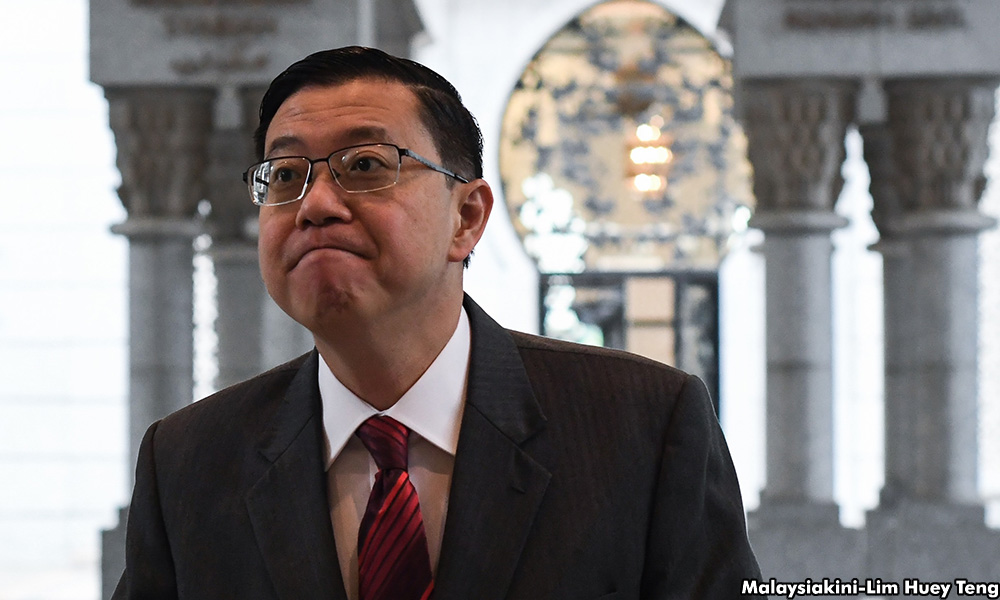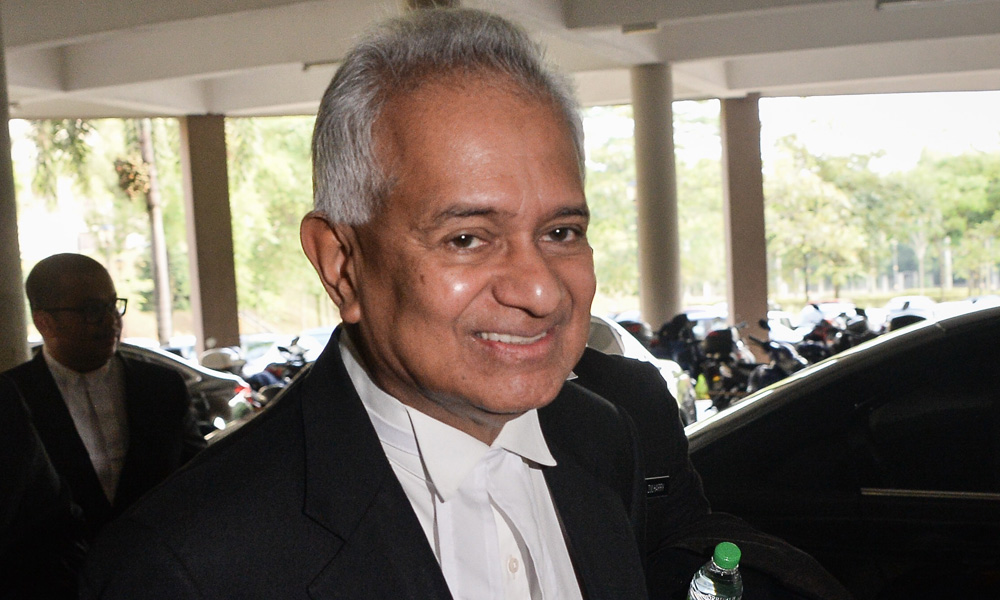
The High Court has fixed Sept 3 for the prosecution to decide if it will withdraw or proceed with corruption charges against Finance Minister Lim Guan Eng and businesswoman Phang Li Koon.
This was after counsel Ramkarpal Singh Deo, representing Lim, informed the court that the representation by the accused to review the charges had been submitted to the Attorney-General's Chambers.
The AG is now in an unenviable ethical dilemma: to drop the charges and face the accusations of partiality or to let the court case proceed so that justice is seen to be done.
The joint trial of Lim and Phang involves the conversion of land use from agricultural to residential and the purchase of a plot of land and bungalow at below market value.
Lim, who was then Penang chief minister, pleaded not guilty on June 30, 2016, to the two counts of corruption. He was charged with using his position as chief minister to gain gratification for himself and wife Betty Chew Gek Cheng by approving the application for conversion of agricultural land to a public housing zone in Balik Pulau to Magnificent Emblem Sdn Bhd.
He faces a second charge of using his position to obtain a plot of land and bungalow at 25 Jalan Pinhorn, on July 28, 2015, from Phang for RM2.8mil, at well below its market value.
Can the AG defend public integrity in this case?
If the AG were the judge in this case, he could no doubt recuse himself from the case. This is because before his accession to the attorney-general’s office, Tommy Thomas (photo) was Lim's counsel in the ongoing corruption case against him and a vocal supporter of the PH coalition. The conflict of interest could not be more jarring.
Public integrity is on trial here. The decision of the AG is crucial to vindicate the public's interest in honest government and an independent justice system.

As part of the “new” regime, the Pakatan Harapan government and the attorney-general have made cracking down on corruption and restoring the public’s trust in government a top priority, given the corruption scandals of the previous BN government.
Whatever the attorney-general’s political affiliations, it is the responsibility of all public servants to maintain a high ethical standard in order to effectively and honestly serve the people.
In fact, to ensure the maintenance of high ethical standards, some countries have created an Executive Ethics Commission to which the attorney-general serves as an adviser.
Typically, such a commission receives complaints, conducts administrative hearings, prepares and publishes guides regarding the ethics laws, issues subpoenas, and makes rulings and recommendations in disciplinary cases.
An Executive Ethics Commission also has jurisdiction over the employees and officers of the executive branch of government.
Act ethically, justice must be seen to be done
Malaysia does not yet have an ethics commission in place . Nonetheless, government employees and elected officials have a responsibility to respect the law, act ethically and conduct their work in an open manner.
The attorney-general’s duty is to help us know our rights and responsibilities under the law and actively prosecute officials who violate the public’s trust.
The AG’s office reminds government entities of their obligations under these laws and how to comply. More than anything else, the AG cannot possibly act in a partisan manner when faced with a case involving a leader of his affiliated political coalition. To do so, would be to risk scorn and the loss of credibility in our justice system.
Faced with this ethical dilemma and unable to recuse himself from the case, the only course of action left for the attorney-general is to let the court decide. After all, as the AG, he must have some faith in the judiciary in this country.
The citizens of this country want to see justice done and to ensure that there is not one set of rules for the poor and another for the rich and powerful, whether the sum involved in the corruption is 2.6 billion or 2.6 million ringgit. This oft-quoted aphorism by Lord Hewart CJ has almost become a cliché but it is worth reminding Malaysians:
“It is not merely of some importance, but is of fundamental importance that justice should not only be done, but should manifestly and undoubtedly be seen to be done”.
And as our newly minted attorney-general deliberates over this ethical dilemma, may I remind him of this astute observation of the Malaysian Attorney-General’s Chambers by one of Malaysia’s foremost constitutional law advocates:
“The powers of the attorney-general make nonsense of the doctrine of separation of powers. Power corrupts and absolute power corrupts absolutely. The power of the AG has increased since Merdeka, it is increasing and ought to be diminished. Immediate steps ought to be taken by the relevant authorities to reduce his powers so that the doctrine of the separation of powers is restored to its proper place in the Constitution.”
– Tommy Thomas (Abuse of Power, 2016:225)
– Tommy Thomas (Abuse of Power, 2016:225)
The writer is adviser to Suaram. - Mkini



No comments:
Post a Comment
Note: Only a member of this blog may post a comment.